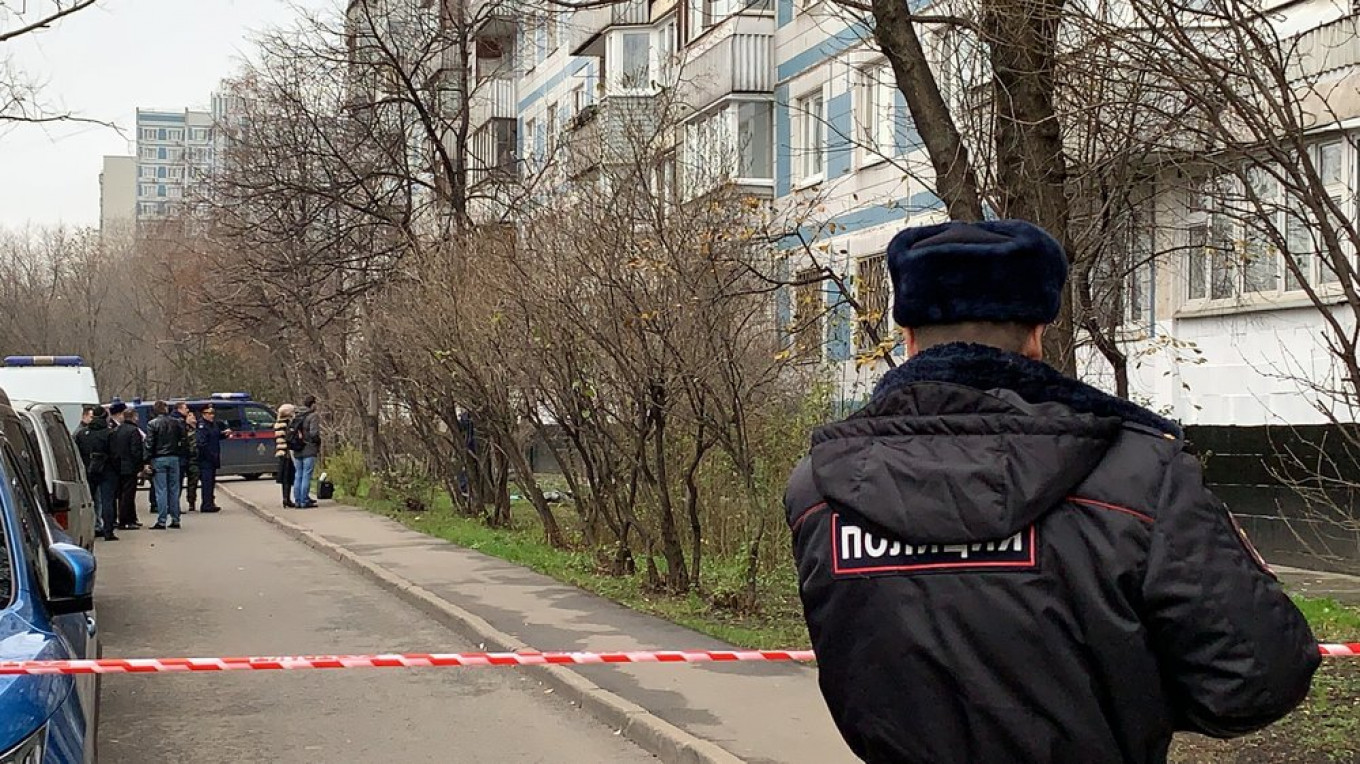On the morning of Nov. 11, 36-year-old Lyudmila Sokolova gathered her two children into her arms and jumped out of the window of her ninth-floor apartment in northeast Moscow. Her baby girl died with her and her six-year-old son was hospitalized in serious condition.
Sokolova had called an ambulance four times that morning because her daughter was sick and refusing to breastfeed, according to the Baza news website. The dispatcher at first told her to call a pediatrician, and by the time paramedics arrived it was too late. Investigators later discovered a suicide note.
“Lyudmila had been having suicidal thoughts since our daughter was born a year ago,” her husband Vitaliy told the Mash Telegram channel.

According to the World Health Organization (WHO), postpartum depression — an episode of depression within a year of giving birth that in its worst cases can take the form of psychosis — affects as many as one-in-six new mothers.
It is seldom discussed openly in Russia and few doctors diagnose the condition because the positive stereotypes that surround new mothers and the stigma attached to admitting to mental health struggles are so strong.
Posts in Facebook groups aimed at supporting women with postpartum depression after the Sokolova tragedy show the prejudice.
“It was much worse for women during World War II, but no one threw children out of windows. Because there was a lot of work and no time to do stupid things,” one woman wrote.
“I think postpartum depression is actually one of the manifestations of the mothers’ egotism, when they suddenly realize that living only for themselves is no longer possible… It’s a matter of personal choice to be happy or depressed,” another user posted.
Ksenia Krasilnikova, the author of the only Russian book about postpartum depression “Not Just Tired: How to Recognize and Overcome Postpartum Depression” and co-founder of the Postpartum.ru website, was hospitalized with the condition for six months after giving birth to her son three years ago.
Krasilnikova said the symptoms were overwhelming and life changing.
“There was a very strong despondency, tearfulness and feeling like I had a lack of prospects. I realized that I didn’t love my child — I was afraid of him and at the same time felt tremendous guilt,” she told The Moscow Times, adding that she eventually began to have suicidal thoughts.
Krasilnikova said that doctors in the maternity ward didn’t notice her psychological problems and only offered support for gynecological issues.
Doula, psychologist and Postpartum.ru co-founder Daria Utkina thinks that Russian women who have postpartum depression often avoid seeking help because neither they nor the doctors link their symptoms with the condition.
“Doctors’ awareness regarding this issue is close to zero. They are not taught about this,” Utkina says.
Zhanna Gardanova, a psychotherapist at the Research Center for Obstetrics, Gynecology and Perinatology, told The Moscow Times that treatment options are complicated because women don’t tend to show symptoms of the disorder immediately after they have given birth.
“Postpartum depression is a condition that may not be immediately apparent. We usually diagnose it six months after childbirth,” she said.
Gardanova added that many women who breastfeed are afraid of taking medication.
Postpartum.ru co-founder Krasilnikova went a step further, saying that Russian psychiatrists usually insist that women stop breastfeeding before they prescribe treatment for postpartum depression, despite WHO guidelines saying some drugs are compatible.
“The woman who gave birth is, first of all, a woman — an oppressed class of people. Besides this, she is a mother, an even more oppressed class of people. Plus she has a mental disorder. It’s a triple target,” Krasilnikova said.
There are neuropsychiatric dispensaries, a day care system and a crisis center for women in Moscow. However, according to Utkina, women who are struggling are reluctant to visit them because they fear that their children will be taken away.
The government does provide some support for new mothers. The MAMAmobi program, supported by the Health Ministry, sends a daily newsletter to mothers with information related to pregnancy and caring for children up to a year old. It includes advice to seek professional help if a woman feels she is depressed.
“The messages cover healthy lifestyles, safety, vaccination, breastfeeding, nutrition, psychology, social safety and other topics,” said Elena Dmitrieva, director of the Health and Development Fund NGO.
Government-run projects, however, are usually created to provide material rather than psychiatric support. As a result, their focus is often not on the mother, but on the child.
“Women have never been in the spotlight, they are seen as people who always owe something,” said Anna Bravoslavskaya, a psychologist, blogger and specialist in postpartum recovery.
But she added that things are changing.
“Five years ago when I gave birth, there was absolutely no information. Today in big cities, there are postpartum doulas, breastfeeding consultants and specialists in postpartum recovery. Fathers are starting to get involved and people are starting to talk about it,” she said.
